I have a use case where I have a word and I need to know the following things:
- Synonyms for the word (just the synonyms are sufficient)
- All senses of the word, where each sense contains - the synonyms matching that word in that sense, example sentences in that sense (if there), the part of speech for that sense.
Example - this query link. Screenshot for the word carry:
For each 'sense', we have the part of speech (like V), synonyms matching that sense, (like transport in the first sense, pack, take in the second sense, etc), example sentences containing that word in that sense (This train is carrying nuclear waste, carry the suitcase to the car, etc in first sense, I always carry money etc in the second sense, etc.).
How do I do this from a Wordnet MySQL database? I ran this query, it returns the list of meanings for the word:
SELECT a.lemma, c.definition FROM words a INNER JOIN senses b ON a.wordid = b.wordid INNER JOIN synsets c ON b.synsetid = c.synsetid WHERE a.lemma = 'carry';
How do I get the synonyms, example sentences, part of speech and synonyms specific to that sense for each sense? I queried the vframesentences and vframesentencemaps tables, saw example sentences with placeholders like %s, and based on the wordid column I tried to match them with the words table, but got awfully wrong results.
Edit:
For the word carry, if I run these queries, I get synonyms and sense meanings correctly:
1. select * from words where lemma='carry' //yield wordid as 21354
2. select * from senses where wordid=21354 //yield 41 sysnsetids, like 201062889
3. select * from synsets where synsetid=201062889 //yields the explanation "serve as a means for expressing something"
4. select * from senses where synsetid=20106288` /yields all matching synonyms for that sense as wordids, including "carry" - like 21354, 29630, 45011
5. select * from words where wordid=29630 //yields 'convey'
So all I now need is a way of finding the example sentence for the word carry in each of the 41 senses. How do I do it?
